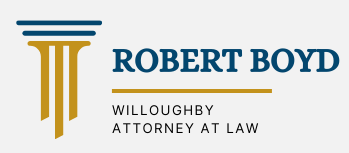Bankruptcy and Divorce

There are a number of ways that bankruptcy and divorce swing hand in hand for a lot of couples. Many studies have shown again and again that arguments over money and finances are one of the biggest factors when it comes to divorce. At the same time, when a couple is handling together a debt that seems far too high to manage and arguments occur more often than not because of it, bankruptcy is something that could be considered.
If you are considering both filing for bankruptcy and ending your marriage, there may be a lot of questions that arise. One of the main ones might be which one you should file for first. The answer regarding this is not straightforward and simple, much like any legal undertaking. It is dependent largely upon your unique circumstances, the divorce laws in your state, the available exemptions from bankruptcy and a number of other factors.
For a lot of couples, divorce and bankruptcy usually go hand in hand. It can go one of two ways: a divorce may end up first leading to a bankruptcy. If not, then the need for bankruptcy, along with the stress, tension, disagreements and anxiety that this stirs up, may lead instead to a divorce. In many ways, people often liken it to the question about the chicken and the egg. Some are able to make it through divorce, especially if it is a highly contested litigation, making it impossible to escape debt. Usually, the contributing factors of this sort of thing include the stress of establishing two households, paying off marital debts, making alimony or child support payments, trying to make a mortgage payment on a home without two incomes, tax consequences and more. Bankruptcy ends up being one of the only ways for a newly divorced or actively divorcing couple to get rid of their debt and escape the harassment that comes from creditors.
Usually, it is realized that bankruptcy is one of the best options that can be taken when divorcing without even considering the other sorts of financial stressors that might come out of the actual divorce on its own. Usually, these things stem from unemployment, preventing foreclosure, dealing with a failed business or anything else.
If divorce is not the main reason for filing bankruptcy, then the pros and cons of which filing to undertake first should be considered as both are quite complicated. For some people, going through a divorce before filing bankruptcy may be the best. For others, going through a joint bankruptcy filing before the divorce helps to maximize the kind and the amount of bankruptcy exemptions available to get the best possible discharges of marital debts, so they do not have to deal with them in the future.
With the help of an attorney, you are ultimately going to be the only one who can determine what is best for your unique situation. When you are thinking about both bankruptcy and divorce, it is crucial that you have a lawyer to help you move through the process of both. They can help assure you that you are taking the correct steps and help you to take them with confidence.
